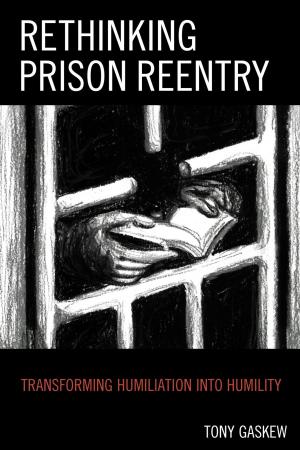A Man Apart
The Journal of Nicholas Cresswell, 1774 - 1781
Nonfiction, History, Revolutionary, Americas, United States, Revolutionary Period (1775-1800), Biography & Memoir, Historical| Author: | Harold B. Gill Jr., George M. Curtis III | ISBN: | 9781461632832 |
| Publisher: | Lexington Books | Publication: | March 16, 2009 |
| Imprint: | Lexington Books | Language: | English |
| Author: | Harold B. Gill Jr., George M. Curtis III |
| ISBN: | 9781461632832 |
| Publisher: | Lexington Books |
| Publication: | March 16, 2009 |
| Imprint: | Lexington Books |
| Language: | English |
The American Revolution radically changed the lives of many, some of them friends of the Revolution, some not, and some who wished to have no part of it for either side. Rarely did one of these reluctant witnesses leave a narrative journal. Nicholas Cresswell, a young English gentry farmer, was one. Arriving in Virginia during the momentous month of May 1774, Cresswell set out to seek his fortune as a farmer in the newer settlements in northwest Virginia. Soon the fortunes of Revolution overwhelmed him and his plans to begin a new life in America. For the next three years, Cresswell struggled to sustain his mission. Time was against him as his combatants on both sides, with increasingly ominous insistence, sought for and demanded his allegiance. This he never ceded. The very act of keeping a journal became dangerous. His written account of his attempt to sustain his liberty has long been a significant window into the turbulence of the Revolution. In offering this singular view of liberty during the Revolution, Nicholas Cresswell stood and still stands as a rebuke to subsequent historians of the Revolution, patriot leaning or loyalist leaning, who had difficulty in accommodating this journal into their generalized views of causation and justification. As a consequence, much of Cresswell's real perspectives were either lost or misinformed. In 1928, an edition of Cresswell's journal was published, but it was expurgated and not annotated. This edition of the Cresswell journal is the first unexpurgated and annotated edition ever published. As such, it offers new light for the better illumination of the turbulent world of revolutionary politics and personalities.
The American Revolution radically changed the lives of many, some of them friends of the Revolution, some not, and some who wished to have no part of it for either side. Rarely did one of these reluctant witnesses leave a narrative journal. Nicholas Cresswell, a young English gentry farmer, was one. Arriving in Virginia during the momentous month of May 1774, Cresswell set out to seek his fortune as a farmer in the newer settlements in northwest Virginia. Soon the fortunes of Revolution overwhelmed him and his plans to begin a new life in America. For the next three years, Cresswell struggled to sustain his mission. Time was against him as his combatants on both sides, with increasingly ominous insistence, sought for and demanded his allegiance. This he never ceded. The very act of keeping a journal became dangerous. His written account of his attempt to sustain his liberty has long been a significant window into the turbulence of the Revolution. In offering this singular view of liberty during the Revolution, Nicholas Cresswell stood and still stands as a rebuke to subsequent historians of the Revolution, patriot leaning or loyalist leaning, who had difficulty in accommodating this journal into their generalized views of causation and justification. As a consequence, much of Cresswell's real perspectives were either lost or misinformed. In 1928, an edition of Cresswell's journal was published, but it was expurgated and not annotated. This edition of the Cresswell journal is the first unexpurgated and annotated edition ever published. As such, it offers new light for the better illumination of the turbulent world of revolutionary politics and personalities.















